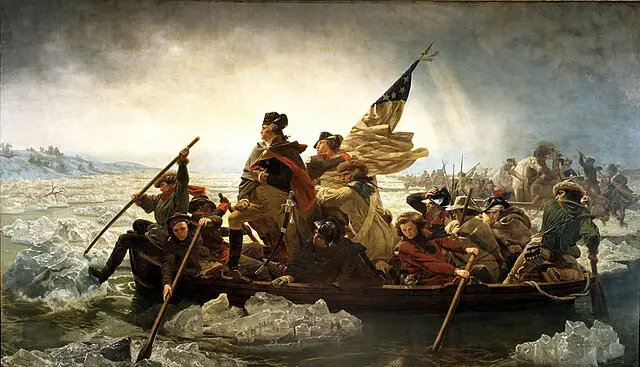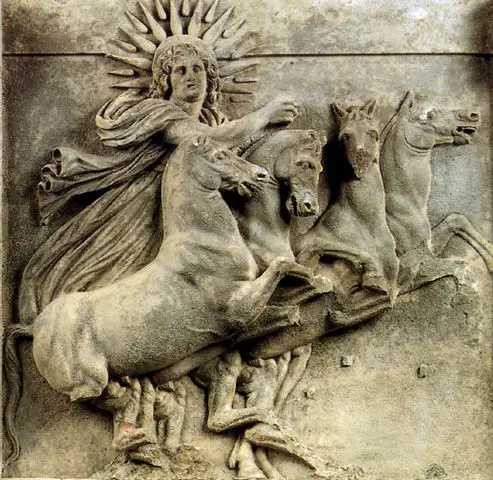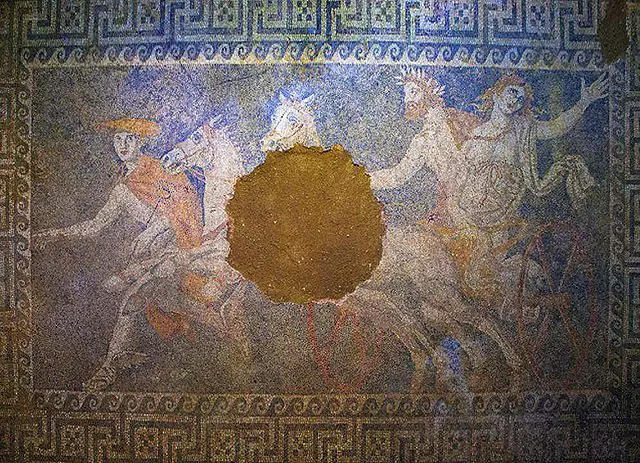| Further Reading | Boston Tea Party: The 3 Reasons Why The Tea Was Dumped |
On December 16th, 1773 three boats filled with British Colonists rowed out into the Boston Harbor and boarded an East India Trading company ship to pour all the tea overboard into the harbor. The British Empire responded to this action by passing a series of laws to penalize the British Colonists. These laws would be called the Intolerable Acts.
The British responded to the Boston Tea Party by passing a series of 4 laws.
- Boston Port Act which closed the port of Boston.
- Massachusetts Government Act which put the state of Massachusetts under direct control of the English Crown.
- Administration of Justice Act which protected Royal officials from colonial law.
- Quartering Act which opened all buildings in the colonies to British Soldiers.
- Quebec Act which destabilized the colonies political power.
These five acts in Britain were known as the Coercive Acts while in the Colonies they were known as the Intolerable Acts.
Here at The History Ace I strive to publish the best history articles on the internet. If at the end you enjoyed this article consider subscribing to the free newsletter and sharing around the web.
Without further ado, here is an entire article on the British’s response to the Boston Tea Party.
British Reaction 1: The Boston Port Act
One of the main reactions of the British to the Boston Tea Party was to directly close the port of Boston to all outside shipments.
This would be called the Boston Port Act. The port would remain closed until the colonists paid back the cost of the tea dumped overboard. Further, once the king was satisfied that peace had been restored and the culprits caught then the port would finally reopen.
However, the Boston Port Act backfired on the British. Instead of forcing the city of Boston into submission it only upset the colonists and united the colonies.
The colonists of Boston argued that the closure of the port penalized all of Boston and not just those who participated in the Boston Tea Party. Their argument was that they were being unjustly found guilty before they could even plead their case.
Further, since the port of Boston was where a majority of the food supplies for Boston came from, the other colonies were forced to send food to the city of Boston. Since Boston could not get any food the 13 colonies would band together to send food and support the city. This was the start of the first aid relief force in the history of the United States.
As a result the 13 colonies would come closer together. This significantly aided them during the Revolutionary War.
As such one of the main reactions of the British to the Boston Tea party was to pass the Boston Port Act.
British Reaction 2: The Massachusetts Government Act
The second British reaction to the Boston Tea Party was to pass the Massachusetts Government Act.
This act effectively removed the local government in Massachusetts and made it so that a royal governor would have nearly absolute control over the colony.
In the British parliament there was a belief that Massachusetts was impossible to control because of the nature of its small localized governments. As a result the British Empire thought it would be best if they removed all local governments and only instituted a royal governor.
This royal governor would answer only to Parliament and the King.
This was a huge problem as the colony of Massachusetts was founded upon democratic election. Massachusetts was unique that from the beginning of its colonial history it had been allowed to vote its colonial leaders into power.
The British Parliament and the King saw this as one of the main reasons for the Boston Tea Party. Getting rid of the colonial assemblies was the first step to controlling Massachusetts.
As such one of the reactions of the British to the Boston Tea Party was to pass the Massachusetts Government Act.
British Reaction 3: The Administration Of Justice Act
The third reaction of the British to the Boston Tea Party was to pass the Administration of Justice Act.
This act made it so that the royal governor of any colony could order a trial of a colonial official to take place in Britain instead of the Colonies. Further, both parties were to bring witnesses to defend or prosecute. While these witnesses would be paid for their travel expenses they would not pay for the lost wages suffered from missing work.
Further, it was believed that any colonial official being tried in a British court would receive either a reduced sentence or no sentence at all.
This would mean that few British colonists could travel to Britain to testify against a colonial official. In this case it would be hard to demand justice for the British colonists.
This act created the most pressure towards pushing the colonies towards independence. In the Declaration of Independence the colonies blatantly call out this act as barbaric.
As such, one of the main reactions of the British towards the Boston Tea Party was to pass the Administration of Justice Act.
British Reaction 4: The Quartering Act
The 4th British reaction to the Boston Tea Party was to pass the Quartering Act.
Quartering of British soldiers was a common practice during the 18th century British Empire. It was expected that when a British army was in town the local people would provide for the army so they could continue on their way.
This was the case during the French and Indian War when the British Army was housed amongst the colonists.
However, the Quartering Act of 1774 made it so that colonial governors could mandate where the army was going to stay. Colonists had no say in the matter. As such many British colonists feared that this quartering act would mean that the King could keep a standing army among them forever to force tax collection.
While the Quartering Act was designed by the British to solve the issues of housing soldiers it did spark unrest among the British colonies. As a result of this act the First Continental Congress would form and rumors would spread that King George was sending an army over to put the colonies under direct control.
As such, this Quartering Act remains one of the main reactions of the British to the Boston Tea Party.
British Reaction 5: The Quebec Act
The final reaction of the British to the Boston Tea Party was the passing of the Quebec Act.
Directly, the Quebec Act had little to do with the Boston Tea Party. However, it is included in the list of Intolerable Acts because it extended the Province of Quebec into the Ohio River Valley.
The British province of Quebec was a seat of Royal authority as it was controlled by a royal governor who owed allegiance to the English crown.
This meant that a majority of the 13 colonies now bordered the largest British province which was at that point controlled by military officers.
This greatly angered the colonists as the land claims of Virginia and the Ohio Company were completely disregarded. Further, this large state destabilized the power dynamic of the 13 colonies who feared that at any second their territory could be taken away.
As such the Quebec Act remains the 5 reaction of the British to the Boston Tea Party.
Conclusion
There you have it; an entire article on the British’s reaction to the Boston Tea Party.
These acts were part of what the colonists called the Intolerable Acts. These acts would be a major driving force to unite the colonies against the British Empire and create the modern nation of the United States of America.
Here at The History Ace I strive to publish the best history articles on the web. If you enjoyed this article feel free to subscribe and share around.
Further, you can read some of the other articles below.
-
How The American Revolution Changed The World

Here is how the American Revolution changed the world. Many people are not aware of just how important this event actually was.
-
Why The Roman People Loved Chariot Racing

Why did the Roman people love chariot racing? Well it all comes down to these 3 reasons.
-
The Design and Color of Roman Chariots

What was the design and color of Roman Chariots? Were they faster or slower then normal chariots? Well here is everything!
Sincerely,
Nick